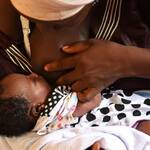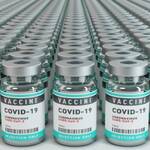Stories paint gloomy pictures of breast cancer all the time.
The month of October which has been set aside for breast cancer awareness is a reminder of sad experiences some family members who died gruesomely due to the crippling effect of breast cancer diagnosis that was diagnosed late.
Early detection saves life but also quick and immediate treatment rendered for early detected breast cancer saves lives.
A 65-year woman who had been diagnosed of breast cancer after a lump was found.
She had a hard time dealing with the diagnosis of the doctor who told her about it.
She was told by the surgeon to commence treatment and referred to the psychologist.
She rather resorted to herbal preparations and prayers.
She returned to the hospital after six months but this time around the lump had grown from a pea size to a size of an orange together with swelling of the left arm with reddening of the skin of the left breast and a sore on the breast.
She accepted her fate saying that it was a thing in the family where people of about 45-50 years die mysteriously without knowing the cause.
She lived in doubt of the doctors’ diagnosis because she believed she was out of the woods.
“I am 65 years and it is a blessing. I don’t believe the diagnosis and I’m not going to die because I’ve crossed that age bracket of death that occurs in my family.
Aside, I don’t have a family history of breast cancer. I neither smoke nor drink.”
She is no more with us. To date, I still admire her courage and positivity.
This is the story we mostly hear. Now listen to another story but this time around, a much more encouraging one.
A 31-year woman who knows that in her family breast cancer was prevalent because she had inquisitively enquired about the death of key members of her family including clergymen and women, bank managers, and business tycoons.
According to her, the whole family had the perception that some angel of death specifically targeted prominent ones in their family who were the financial backbones of the family.
She noticed the pattern of death in her family so read about it and realized it was breast cancer.
She said they all died of breast issues. She had come to present with a lump in the breast to the clinic.
Guess what? She accepted the diagnosis and counseling of the clinical psychologist.
She is a religious person who involved her clergymen who prayed for her but encouraged her to take the treatment of the doctors seriously.
She started treatment immediately after careful and requisite labs were done.
She went through chemotherapy (treatment procedure where drugs are given to kill cancer cells) and all other treatment requirements.
She is well until today. She always says I know my family history so I examine myself every month.
Dear reader, I think we can take a leaf from this person’s book.
What must I do when I have a family history of breast cancer?
Knowing your family history is one of the first steps in putting a barricade between you and late staged breast cancer.
Always probe and ask about deaths in your family of young women dying.
Monthly, consistent, and consecutive breast exam is just enough.
Aside from family history, it is recommended that one stops smoking, and alcohol intake as well as watching out for obesity. Reduce alcohol intake but quit smoking.
Did you know that 15 minutes walk away from your home and back is enough to reduce your risk of breast cancer and not only breast cancer but also non-communicable diseases like hypertension, diabetes, kidney disease, etc
What should I do if I don’t have any family history?
I don’t have a family history of breast cancer therefore I’m out of the woods when it comes to breast cancer. This statement and assertion is what is peddled on social media.
Look at the story of the first woman above. She didn’t have any family history known to her.
It doesn’t necessarily mean that there was no breast cancer history. No family history of breast cancer doesn’t alienate from breast cancer.
You may be the very first person of your family with breast cancer. The reassuring message is early detection saves lives.
Early detection saves your breast. Immediate and prompt treatment after diagnosis is crucial.
It is rather late-stage breast cancer that kills. Early detection is the key.
How to self-examine your breast at home
Get a mirror in your room which is well lit with natural light. The mirror should have a length spanning from the crown of your head to the waist line.
The first step is to stand in-front of the mirror exposing your body from your neck level to the waist level.
You then lift your breast to inspect the underside of the breast on either side. Followed by checking armpits.
You can skillfully palpate the breast in a circular pattern making sure you touch every part as well as the two armpits.
The last thing is to gently squeeze the nipple.
This helps know the feel and appearance of your breast so that deviation from your normal will quicken a visit to the hospital.
By Dr. Michael Baah Biney
- Friday, May 9, 2025 Newspaper Headlines - 9 May 2025
- Adangabey brightens rural kids’ future from his wheelchair - 9 May 2025
- Stanbic donates ICT equipment to UHAS for digital learning - 9 May 2025




